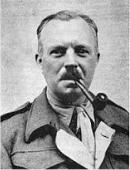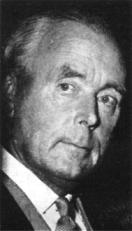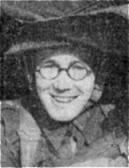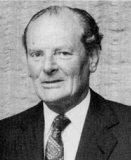Dunkirk (1940) - 7th Battalion Officers
LIST WAS LAST UPDATED ON THE 30th JANUARY 2012
Surname |
Forename/s |
Rank |
Number |
Company |
Notes |
| John | Lieut.-Colonel |
|
C.O. |
||
Goldie |
Richard Marie Joachim | Major |
15396 |
2 i/c. |
Attached from King's Own Royal Regt. |
Boyt |
John Sherren | Major |
31784 |
A |
Killed later in Burma 20/03/1945 |
Woodward |
R. R. | 2/Lieut. |
79046 |
I.O. |
|
Vale |
T. G. | Major |
39724 |
|
|
Anderson |
George S. | Capt. |
92657 |
Mortar Platoon |
Wounded at La Bassee |
Dykes |
David Basil W. | Capt. |
|
|
|
Hingley |
Gerald Bertram | A/Capt. |
73423 |
A 2i/c |
Killed at Tournai 20/05/1940 |
Tomkinson |
John Whitaker | Capt. |
52824 |
D |
|
Byrd |
Percy | Capt. |
36148 |
|
Wounded. |
| Edward Reed Ward | Capt. |
64486 |
|
|
|
Viney |
H. T. | Capt. |
38071 |
|
|
Seabrook |
Thomas John W. | A/Capt. |
|
Acting Adjutant |
Wounded 28/05/1940 Taken prisoner. |
Monahan |
Patrick Charles Watson | 2/Lieut. |
90035 |
A |
Killed 26/05/1940 |
Ibbetson |
Samuel Frank | 2/Lieut. |
105535 |
A |
Killed 26/05/1940 |
Betts |
John Francis | Lieut. |
79030 |
C |
Wounded 26/05/1940 Taken prisoner. |
|
George William Reginald Victor |
Lieut. |
7903 |
Killed 27/05/1940 |
||
Chesshire |
George Pountney P. | Lieut. |
92383 |
Signals |
Signals Officer |
Evers |
Ralph H. K. | Lieut. |
72287 |
|
|
Pilcher |
Richard Kenneth | Lieut. |
100999 |
M.O. |
Wounded 21/05/1940. |
Watson |
R. S. H. "Sandy" | Lieut. |
89629 |
D |
|
Whitaker |
Charles M. A. | Lieut. |
73428 |
D |
Taken prisoner. |
Goodwin |
David George | 2/Lieut. |
88624 |
Killed 26/05/1940 |
|
| Ronald Clifford Thomas | 2/Lieut. |
47456 |
D |
16 Platoon commander |
|
Green |
Simon M. | 2/Lieut. |
90023 |
Anti-Tank Platoon |
Wounded 28/05/1940 Taken prisoner. |
Rowlatt |
Denis Frederick Napier | Lieut. |
109083 |
|
|
Lunt |
Donald Howard | 2/Lieut |
|
|
Wounded 22/05/1940. |
Tomkinson |
Kenneth Ronald G. | Lieut. |
95425 |
|
|
Note: Lieutenant George William Reginald Victor Coventry was the 10th Earl of Coventy.
Captain Thomas John W. SEABROOK
 Tom Seabrook born on the 21st May 1901, Walsall. He joined the Regiment very soon after the First World War for he was already a Sergeant, Officers' Mess Sergeant, of 1st Battalion The Worcestershire Regiment in Meerut, India in 1924 and 1925.
Tom Seabrook born on the 21st May 1901, Walsall. He joined the Regiment very soon after the First World War for he was already a Sergeant, Officers' Mess Sergeant, of 1st Battalion The Worcestershire Regiment in Meerut, India in 1924 and 1925.
In the early 1930s, he was Company Sergeant-Major of 'C' Company, 2nd Battalion Worcestershire Regiment in Malta.
Prior to the outbreak of the Second World War, he was for a time, R.S.M. of 7th Battalion Worcestershire Regiment (T.A.), at The Shrubbery, Kidderminster. He was commissioned on the outbreak of war and went to France as Intelligence Officer of the 7th Battalion. When the 7th Battalion advanced to the Dyle, he was Acting Adjutant.
He was in action at La Bassee Canal and whilst carrying out a reconnaissance, his party was attacked by enemy tanks, and Tom was severely wounded and taken prisoner. As a result of his wounds, he lost an arm and was repatriated to England under the Geneva Convention.
Immediately after the war he was appointed Adjutant to Lieut.-Colonel C. V. W. Court, Commanding the Holding Battalion at Ross-on-Wye.
Later he was for a short time a Yeoman Warder at the Tower of London.
He was a dedicated Freemason and was for years, a prominent supporter of the Regimental "Glittering Star" Lodge.
He was an honorary representative of The Worcestershire Regiments' Association for many years, and he worked tirelessly for the British Limbless Ex-Servicemen's Association in the Midlands.
After his retirement he kept closely in touch with Regimental Headquarters, and he was a most valuable source of information on all kinds of Regimental matters, and he attended as many Association functions as he could with the utmost regularity.
Captain Tom Seabrook died on the 21st May 1975, at Walsall General Hospital, after a short illness, aged 75 years.
Major George S. ANDERSON (92657)
 George Anderson joined the 7th Battalion of The Regiment in 1939. He was mobilized on the outbreak of war as Battalion Mortar Officer.
George Anderson joined the 7th Battalion of The Regiment in 1939. He was mobilized on the outbreak of war as Battalion Mortar Officer.
He went to France, with the 7th Battalion, in January 1940. In May 1940, he took part in the advance into Belgium and the subsequent withdrawal of the B.E.F. to Dunkirk. He was badly wounded during the withdrawal at La Bassee, and was evacuated to U.K. from Dunkirk. On recovering from his wounds he was posted to the War Office as G.S.O.2 on the "D-Day" Planning Staff.
Before the war he had lived in Malaya, as a result of which he was offered a post with the Far East Planning Staff, and promotion. But he declined this offer to take up a business appointment in England. This appointment was with Brinton's Limited, Kidderminster, the well-known firm of carpet manufacturers, with which firm George Anderson quickly rose to the position of Company Secretary and a Director.
He was also the very much respected and popular Chairman of the Three Choirs Festival Committee, towards the success of which he put in a tremendous amount of tireless enthusiasm and work, a member of the Birmingham Regional Hospital Board and a former Chairman of the Mid-Worcestershire Hospital Management Committee.
Major George Anderson died at his home, The White Lodge, Bevere, near Worcester, on the 3rd April 1966, at the age of 61 years. After returning from a business trip to Australia and New Zealand. He was attending to a water leak at his home on the evening of Sunday, 3rd April 1966, when he slipped, clutched a wet electric fitting to break his fall, and received a fatal electric shock.
Captain David Basil W. DYKES
 Born in Worcestershire on the 5th November 1911. Educated at Clifton College where he was a Cadet Serjeant.
Born in Worcestershire on the 5th November 1911. Educated at Clifton College where he was a Cadet Serjeant.
He was commissioned in the the 7th Battalion Worcestershire Regiment on the 18th April 1936, with the rank of 2nd Lieutenant. He was promoted to the rank of Lieutenant on the 1st July 1939. He went to France, with the 7th Battalion, in January 1940. In May 1940, he took part in the advance into Belgium and the subsequent withdrawal of the B.E.F. to Dunkirk. He later reached the rank of Major.
In the 1950's he was Clerk to the Ledbury Urban District Council. In the 1970 he was the Superintendent Registrar at Ledbury.
Died 15th August 1992 at Hanley Swan, Worcester, age 80.
Captain Percy BYRD (36148)
"Dicky" Byrd was a prominent Vale of Evesham fruit grower, a keen sportsman and took an active part in local affairs Between the wars.
He served in the 8th Battalion Worcestershire Regiment and was promoted to rank of Lieutenant on the 1st August 1929. He was promoted to rank of Captain on the 28th january 1931.
He rejoined Worcestershire Regiment on mobilization in 1939. He had a brief spell with the 7th Battalion in the B.E.F. before being evacuated through Dunkirk, where he was wounded. In Mid-1941 he rejoined the 12th Battalion Worcestershire Regiment and served with them in Iceland and then, when the Battalion was converted to the 179th Field Regiment R.A., was posted to the 9th Battalion worcestershire Regiment in Northern Ireland. He subsequently served on Home duties until the end of the War.
He was awarded the Territorial Efficiency Decoration (T.D.) on the 30th August 1945.
After his release from the Army in November 1945 he returned to the family business in Evesham. During the following years he served on the Evesham Borough Council, became a Justice of the Peace and Deputy Chairman of the Magistrates Court. He was also President of the Evesham Service Men's Club and Vice-President of the local branch of the Royal British Legion.
He ceased to belong to the Territorial Army Reserve of Officers on the 30th April 1958 and was granted the honoary rank of Major.
He died on 7th March, 1977, age of 69.
Lieutenant Denis Frederick Napier ROWLATT (109083)
 Denis Rowlatt was commissioned in December 1939 and served in the 7th Battalion Worcestershire Regiment and fought in France in 1940 (BEF). He was evacuated from Dunkirk with the Battalion. After a year as Adjutant he went to India with the 7th Battalion. He attended the Staff College in India in 1943 and joined HQ 39 Indian Division as GSO2(T). In 1945 he returned to the UK joining ALCAN with whom he remained until retiring in the early 1960's.
Denis Rowlatt was commissioned in December 1939 and served in the 7th Battalion Worcestershire Regiment and fought in France in 1940 (BEF). He was evacuated from Dunkirk with the Battalion. After a year as Adjutant he went to India with the 7th Battalion. He attended the Staff College in India in 1943 and joined HQ 39 Indian Division as GSO2(T). In 1945 he returned to the UK joining ALCAN with whom he remained until retiring in the early 1960's.
He died at Lymington, Hants. on 24th October 2000, aged 90.
Acting Captain Gerald Bertram HINGLEY (73423)
Gerald Bertram Hingley was a very keen Territorial Officer who was commissioned in the 7th Battalion on 10th November, 1937. Prior to the war he spent the bulk of his leisure time working for his efficiency as a Territorial Officer. As well as attending every camp, brigade and battalion exercise, he attended courses at the Army Gas School (Porton), and the Small Arms School, Netherhaven, where he qualified as a Mortar Instructor. Prior to the war he was the Battalion Mortar Officer. He received the acting rank of Captain and became 2nd-in-command of "A" Company, in September 1939, but owing to the intake of substantive senior officers from the U.K., he assumed the rank of War Substantive Lieutenant in the early Spring of 1940. Below follows a brief report by Tom Seabrook of the events leading to the evening of May 20th 1940, when Lieutenant G. B. Hingley was killed.
On Sunday, 19th May, 1940, the Second Division—which included the 7th Battalion, streamed back across the bridge into the City of Tournai. The bridge, by a lucky chance, still stood. To us the bridge was a landmark, for we had crossed it in our measured advance eastwards ten days before.
Firstly there had been the rush into Belgium from the French border to take up "Plan D" positions overlooking the River Dyle. Defences, meticulously sited, were taken up ; then came a period of elation waiting for a meeting with the enemy. Instead, we received orders to withdraw, followed by similar orders, again and again. To say the least, it was a disheartening business. As soon as we uprooted ourselves to make a rendezvous for our next position (or even before), fresh instructions would arrive from Brigade H.Q. and our route, direction or objective, would be changed. Each night found us on the move; even Company Commanders had only vague ideas as to where the morning's halt would bring them. Fortunately, our retirement was within the confines of our "advance" of the previous week, thus the same maps were still available. Between Genval and Tournai our main points of resistance were La Hulpe, Bois de Soignes and Lessines. It was from this latter position that we rushed back to re-form at Orcq.
The civilian population were on the move also. Every conceivable form of transport hampered the highways. Push-carts, barrows, donkey carts, dog teams, decrepit horses pulling some form of farm conveyance, and occasionally a private car loaded with baggage and carrying twice its normal passenger complement, would attempt to manoeuvre its way through the terrified throng streaming westwards. Every family on the road appeared to possess a red blanket which was employed as a hold-all for the belongings of the party. The enemy took advantage of this chaos and systematically bombed and machine-gunned the road intersections. The resultant casualties acted as a brake on our westwards flow. It was always a fight to keep men and vehicles moving through the hordes of refugees choking the highways and thus nullifying the tactical advantage which mechanisation gave us in this withdrawal.
The final rush into the city of Tournai was terrifying in its disorder; the whole of the vehicles and troops of not only the Second Division, but indeed the whole of First Corps, seemed to be pouring over one bridge into the city. The battalion, by this time, had entirely disintegrated and crossed the bridge between seven and ten in the morning.
Before noon we had concentrated at Orcq, about two miles from the town. Our "B Echelon," which had not been involved in this last hectic rush, were thus able to feed the men so that the essential work of re-organising could go on. It was fine and warm and, except that there was some air activity, the war seemed far away. Wholesale oblutions with the washing of shirts, vests and socks became the main occupation of the troops.
At night we were still without orders to move. The C.O. took a gamble that we should remain at Orcq at least until daybreak, and accordingly gave orders that guards were to be reduced to an absolute minimum. Everyone was to rest; but for those responsible for the battalion's direction there could be no rest. Before midnight there was the sound of heavy gunfire, the sky was aflame with artillery exchanges. The battle of the River Escaut was on; but of what was happening we had no idea. Several times during the night it appeared that the battalion must be alerted—but the C.O. adhered to his overnight decision. By morning sleep had restored the youthful vigour of the unit.
The difference between the tired, dirty and dispirited horde who had rushed across the bridge into Tournai on the previous day and this happy band of young men on this fine morning of May 20th 1940, was amazing. The value of that night's rest to the men was beyond computation.
Recce. parties were out early to meet units of the 42nd (East Lancashire) Division. They were in position at the riverside, within the city. The bridge over which our rabble had scurried had been blown up. The town showed signs of some bomb and artillery fire damage, but most of the population had moved on. A few civilian casualties had not yet been cleared. The city of chaotic movement of the Sunday was now desolate except for parties like ourselves and the Military Police engaged on Traffic Control.
Defence areas were allocated to Companies and relief arrangements made to take place at nightfall, but, as usual, there was an alteration in programme.
During that afternoon we received orders to prepare to move to Brigade Concentration in the neighbourhood of Collonne. Instructions were issued to Companies to proceed by platoons at the usual irregular intervals to the assembly area some three miles distant. The movement was to be by road.
When everything was prepared for the move, as indicated, the Brigadier scrapped our Operation Orders and ordered a movement, in Artillery Formation, across the open country over the skyline to our objective. We moved off, in daylight, at about 7.30 p.m. Sections were about 50 yards apart and platoons at intervals of 200 yards. It was just a fantastic drill movement. Whether the area over which we were moving had been previously registered by artillery, or whether this was another example of German Air Co-operation, will never be known, but, before we had reached halfway on our cross-country jaunt, we ran into a very heavy systematic barrage which moved forward with us until we reached our objective.
By 9.0 p.m. reports were to the effect that Companies had reached their appointed positions. The cost was heavy, for the roll call showed seventy casualties on that move to our battle positions. These were mainly in "A" (Dudley), "B" (Stourbridge) and "C" (Stourport) Companies. Among them was our first officer causalty, Lieutenant G. B. Hingley, who at that time was in command of "A" Company.
It is with great grief that we recall that all the officers of "A" Company, at that time, were killed in the war. 2nd-Lieutenants P. C. Monahan and S. F. Ibbetson in France, and later Major J. S. Boyt, T.D., the Company Commander, in Burma.
